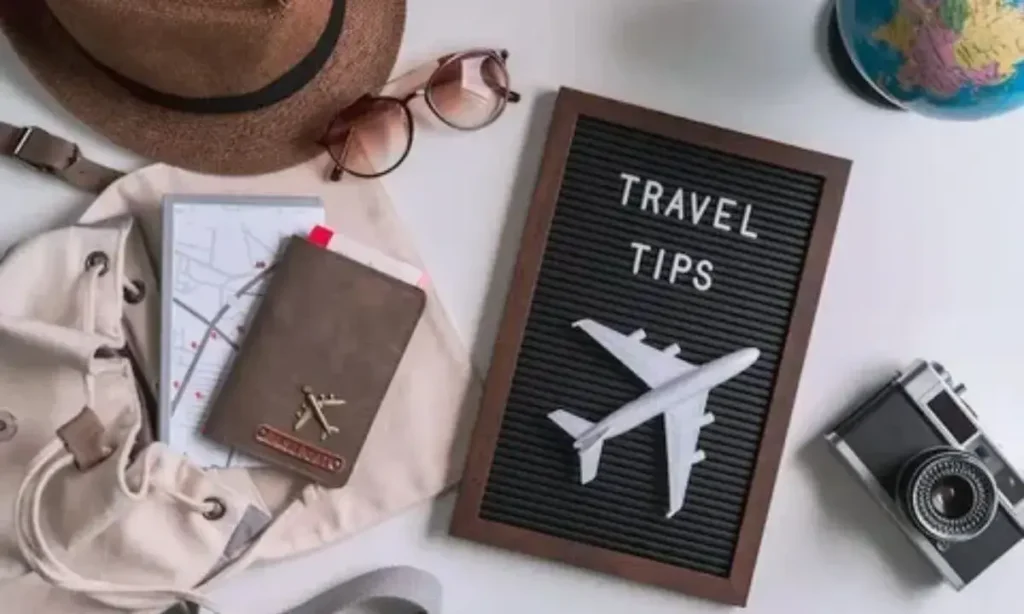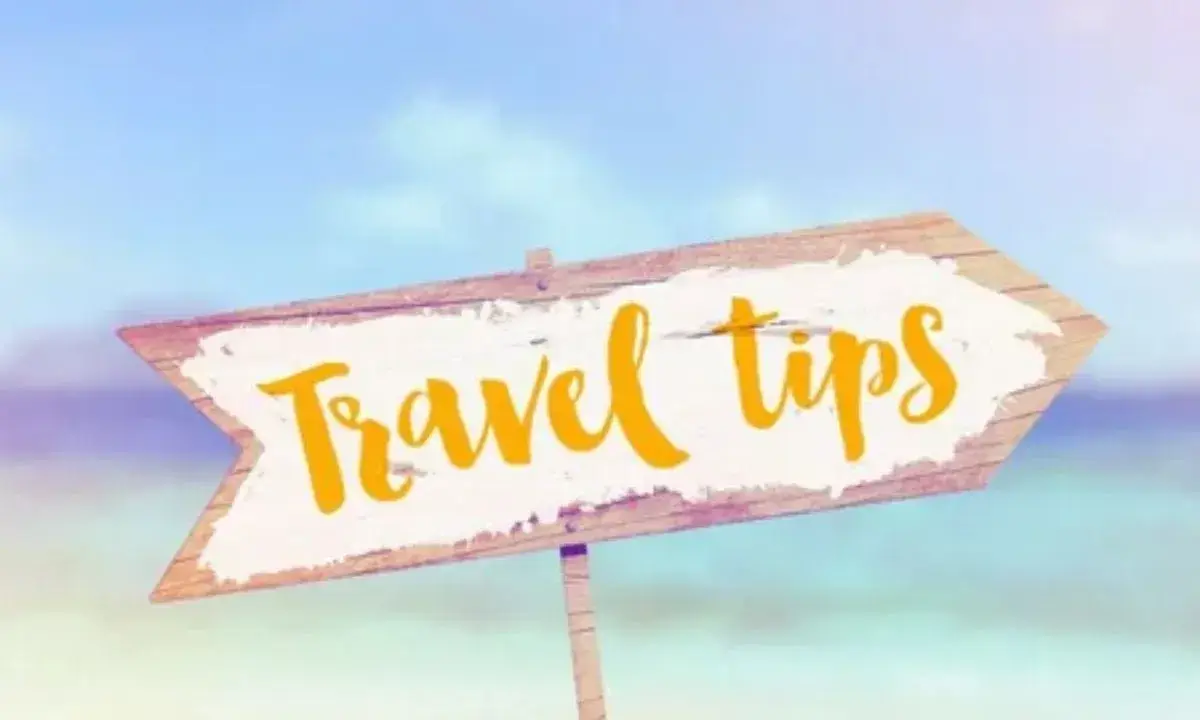Traveling can be one of life’s most rewarding experiences. However, the secret to a memorable trip isn’t just in picking a destination—it’s about balancing careful planning with the freedom to explore spontaneously. In this guide, we’ll dive deep into travel planning tips, packing strategies, budgeting, hidden gems, local cuisine, and mindful travel. By the end, you’ll be fully equipped to plan a trip that’s organized, flexible, and unforgettable.
Plan Early, but Stay Flexible
Planning early is essential to secure flights, accommodations, and attractions at the best prices. Tools like Skyscanner and Hopper allow travelers to track flight prices months in advance, helping save hundreds of dollars. For instance, booking a round-trip flight from New York to Paris six months in advance can cost around $500, compared to last-minute fares often exceeding $800.
Flexibility, however, is equally crucial. Travel rarely goes exactly as planned. A sudden rainstorm in Vietnam or an unexpected festival in Japan can disrupt your itinerary. Embracing a flexible mindset allows you to pivot without stress.
Tips for balancing planning and flexibility:
- Use a modular itinerary: allocate certain fixed activities and leave open slots for spontaneous exploration.
- Track changes with apps like TravelMapper for real-time updates.
- Prioritize experiences over rigid schedules.
Pack Light, Pack Smart
Traveling light isn’t just convenient—it enhances mobility, reduces baggage fees, and minimizes stress.
Packing essentials table:
| Item | Purpose |
|---|---|
| Versatile Clothing | Suitable for various occasions |
| Travel Documents | Passport, tickets, insurance |
| Electronics | Phone, charger, adapters |
| Basic Medications | Pain relievers, personal needs |
| Lightweight Jacket | For unexpected weather changes |
| Packing Cubes | Organize and compress clothing |
Packing strategies:
- Roll clothing instead of folding to save space.
- Use packing cubes to separate items by type or day.
- Opt for multi-purpose items, such as a scarf that doubles as a blanket or pillow.
- Travel-sized toiletries reduce bulk and comply with airline regulations.
Research Your Destination
Understanding your destination can transform a simple vacation into a rich cultural experience.
Key research areas:
- Culture & Etiquette: Know local customs, tipping habits, and dress codes.
- Climate & Weather: Prepare for temperature changes and seasonal conditions.
- Transportation: Learn about public transit, taxis, and ride-sharing apps.
- Currency & Costs: Know the exchange rate and average expenses for meals, transport, and attractions.
Useful resources:
- Official tourism websites and Atlas Obscura for unique experiences.
- Travel forums like TripAdvisor or Reddit for insider tips.
- Local blogs and social media for hidden gems.
Set a Realistic Budget
Budgeting is key to stress-free travel. A well-planned budget allows for adventures without financial strain.
Sample budget breakdown (USD):
| Expense Category | Estimated Cost |
|---|---|
| Flights | $500 |
| Accommodations | $300 |
| Food | $200 |
| Activities | $150 |
| Miscellaneous | $100 |
| Total | $1,250 |
Budgeting tips:
- Use apps like Trail Wallet to track daily expenses.
- Include a buffer for emergencies or spontaneous experiences.
- Prioritize experiences over souvenirs to maximize enjoyment.
Discover Off-the-Beaten-Path Attractions
Stepping off the typical tourist path offers unique experiences and lower costs.
Benefits of off-season travel:
- Fewer crowds, more authentic interactions, and cheaper accommodations.
- Example: Visiting the Montmartre district in Paris during early spring avoids summer congestion while retaining vibrant charm.
Finding hidden gems:
- Seek recommendations from locals, blogs, and social media.
- Explore smaller museums, local markets, and neighborhood cafés.
- Balance popular attractions with hidden spots for a richer experience.
Navigate Public Transportation
Understanding local transport is vital for a smooth trip.
Costs to consider:
- Single tickets (e.g., NYC subway ride $2.75, Tokyo metro $1.50–$2.50)
- Multi-day passes for tourists
- App-based ride-sharing options
Tips for using public transit:
- Learn the main routes and validate tickets.
- Avoid peak travel times when possible.
- Use apps like Google Maps or Citymapper to plan routes efficiently.
Savor Local Cuisine
Tasting authentic food is one of the most immersive ways to experience a new culture.
Must-try local dishes:
- Vietnam: Pho ($2 per bowl), Banh Mi sandwiches ($1–$2)
- France: Croissants, escargot, coq au vin
- Japan: Sushi, ramen, street takoyaki
Finding authentic dining experiences:
- Prefer locally-owned restaurants over tourist-heavy spots.
- Ask locals for hidden cafés or family-run eateries.
- Explore markets and street food stalls for authentic flavors.
Choose Locally-Owned Accommodations

Opting for local stays supports the community and provides a more personalized experience.
Why choose local:
- Boosts local economy and small businesses.
- Often includes insider tips or personalized service.
How to find local accommodations:
- Use Booking.com and Hostelworld filters for boutique or family-run stays.
- Read reviews for quality and authenticity.
- Consider homestays, bed-and-breakfasts, or small guesthouses.
Engage in Free Activities
Travel doesn’t have to be expensive. Many enriching experiences come at no cost.
Examples of free activities:
- Museums with free entry days (e.g., British Museum)
- Nature hikes, walking tours, and city parks
- Local cultural festivals
Tips for discovering free activities:
- Check official tourism websites for events and exhibitions.
- Follow local social media pages for real-time updates.
- Ask locals for recommendations to uncover hidden opportunities.
Prioritize Safety and Awareness
Safety should always be a priority.
Essential safety tips:
- Carry copies of important documents, such as passport and travel insurance.
- Keep an eye on belongings, especially in crowded areas.
- Be cautious with personal information and money.
Importance of travel insurance:
- Covers medical emergencies, lost luggage, and trip cancellations.
- Recommended providers: Allianz, World Nomads, and Travel Guard.
Embrace Slow Travel
Slow travel allows you to immerse fully in your surroundings rather than rushing from attraction to attraction.
Benefits of slow travel:
- Reduces stress and allows deeper cultural immersion.
- Encourages meaningful interactions with locals.
- Can save money by staying longer in one location.
Tips for embracing slow travel:
- Spend several days in fewer locations.
- Engage in local experiences like cooking classes or language workshops.
- Walk or cycle to explore neighborhoods for richer insights.
Capture Memories, Not Just Photos
Travel memories are more than images—they’re about stories, experiences, and feelings.
Tips for meaningful documentation:
- Maintain a travel journal or blog to capture emotions, anecdotes, and details.
- Create short videos or voice memos to complement photos.
- Include sketches or receipts for a tangible memory archive.
Mindfulness in travel:
- Stay present and engage all senses—taste, smell, and sound.
- Limit phone usage and digital distractions.
- Reflect daily on experiences for deeper appreciation.
Conclusion
Travel is an art of balancing planning and spontaneity. Early planning secures the essentials, while flexibility allows for magical, unplanned moments. By packing smart, researching destinations, budgeting effectively, discovering hidden gems, savoring local cuisine, and prioritizing safety, your journey becomes richer, more immersive, and truly memorable.
Start planning today, but leave room for adventure—because the best stories happen when you let the unexpected unfold.

Ember Clark is an expert blogger passionate about cartoons, sharing captivating insights, trends, and stories that bring animation to life for fans worldwide.

